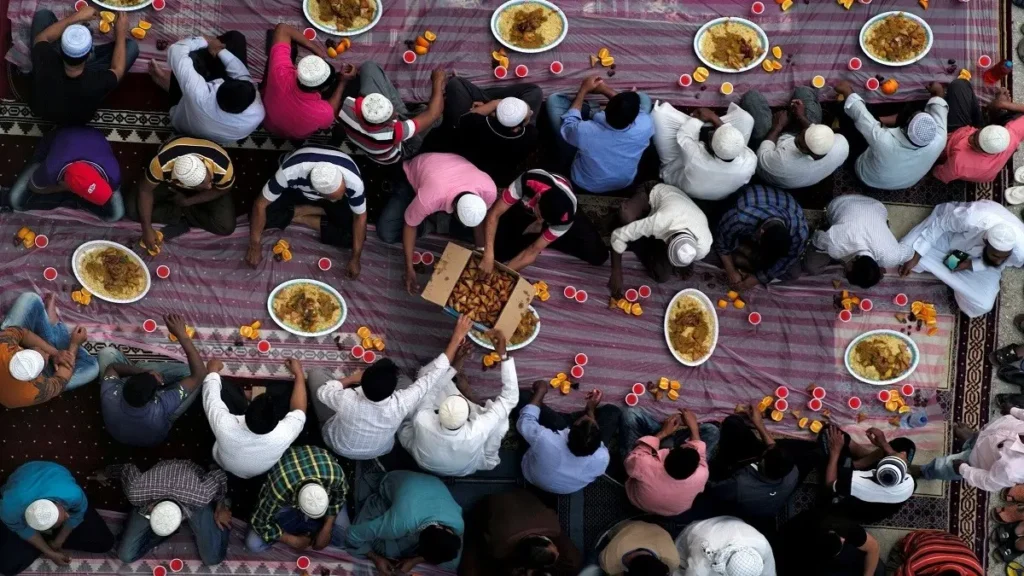A Guide to Ramadan in Dubai: Rules, Traditions, and Events
A Guide to Ramadan in Dubai: Rules, Traditions, and Events

What is Ramadan
The holy month of Ramadan is one of the most important times for Muslims in the UAE and other parts of the world. Ramadan is to celebrate the ninth month of the Islamic calendar, when the Quran was first revealed to the Prophet Muhammad, (PBUH). Muslim remembers the Holy month by fasting, prayer, and spending time together during Suhoor and Iftar.

Rules & Traditions of Ramadan in Dubai
Ramadan in Dubai is a captivating cultural experience, marked by the harmonious blend of age-old traditions and contemporary celebrations. This holy month brings forth a vibrant community spirit, as the city adapts to a distinct rhythm that resonates throughout its streets.
During Ramadan, the daily fast begins before dawn with a pre-dawn meal known as suhoor, and it concludes at sunset with iftar, the evening meal that breaks the fast. Families, friends, and neighbors gather to share iftar, often enjoying a variety of traditional dishes, including dates, fragrant rice, and a selection of sweet and savory treats. Local restaurants and hotels often offer elaborate iftar buffets, reflecting the culinary diversity of Dubai.
- Fasting
Fasting is one of the most important rules during Ramadan observed in Dubai and all around the world. During this month, Muslims fast by abstaining from eating, drinking, and smoking from sunrise until sunset.In addition, they are also encouraged to avoid negative thoughts, action,s and words. The fast serves to cleanse both body and soul and helps to focus on worship.
- Iftar and suhoor
Following is the explanation

- Suhoor:
This meal is eaten before dawn, just before the fast starts at sunrise. By choosing the right ingredients, individuals can ensure they have the stamina and hydration needed to navigate the challenges of fasting from dawn to sunset.
- Iftar:
Iftar is a most important part of Dubai’s social culture. During Ramadan, often invite others, including non-Muslims to join them for iftar. If you receive an invitation to an Iftar gathering in Dubai, I highly encourage you to accept it! This experience offers a unique glimpse into the warmth of Emirati hospitality and allows you to become part of a communal celebration. It’s customary to bring a small gift, such as dates, sweets, or even a traditional dish, as a token of appreciation for the host.
Whether you attend Iftar at a bustling restaurant or in the intimate setting of someone’s home, you will have the chance to immerse yourself in the spirit of Ramadan. The meal often begins with the breaking of the fast at sunset, traditionally done with dates and water, followed by a lavish spread featuring an array of delicious dishes like lamb, rice, and various salads.
- Tarawih Prayers:
After the Isha prayer during Ramadan, special Taraweeh prayers are held at mosques across Dubai. These extended prayers are significant cultural and spiritual events, attracting large groups of worshippers each night and creating a vibrant atmosphere. Notable mosques like the Grand Mosque and Jumeirah Mosque invite non-Muslim visitors to participate in these prayer services, fostering understanding and appreciation of Islamic practices while enriching cultural exchange during the holy month.

- Dressing appropriately:
Dressing appropriately in public areas is guided by established norms, especially during Ramadan, a significant month in the Islamic calendar. It is essential to show respect and consideration for the local customs by wearing modest clothing that covers your shoulders and knees and opting for loose-fitting garments that allow for comfort and ease in the warm climate.
Adjusting to new timings in Ramadan
During Ramadan shifts and timing are changed
- Work Hours: Employees in UAE get a shorter workday, usually by two hours, even if they are not fasting.
- Shopping Malls: Malls stay open late some even until 2 AM on weekends.
- Restaurants: Some stay closed till iftar, so check before you go.
Visit Ramadan Markets
Dubai is buzzing with exciting Ramadan markets throughout the month, providing a glimpse into the country’s rich history and culture. These markets are an ideal place to explore traditional customs, shop for souvenirs and clothing, and enjoy delicious Iftar and Suhoor meals. Most of these markets are free for both tourists and residents to enter.
Here are some of the most popular Ramadan markets in Dubai:
- Ramadan Night Market at the Dubai World Trade Center
- Al Seef Night Market
- Expo City Ramadan Night Market
- Bluewaters Island Night Market
- Mall of The Emirates Ramadan Night Market
Charity during Ramadan
Charity (known as zakat & Sadqqah) is a vital part of Ramadan. It serves both as a religious obligation and as a means of giving back to the community. Muslims are encouraged to donate during this holy month to support those in need.
Zakat: It is calculated as 2.5% of Muslim wealth and is given to the poor or for community welfare.
Sadqqah: Refers to that voluntary charity can be given at any time, these donations can take various forms, including money, food, and clothing.
Ramadan Events and Festivals In Dubai
You could also dive deeper into specific events that happened during Ramadan in Dubai. While Ramadan markets are mentioned, there are also Ramadan-related festivals and events worth exploring:
Ramadan Night Markets: A more in-depth look at what you can expect at each of these markets (foods, cultural performances, arts and crafts) could enrich the experience.
Dubai Opera’s Ramadan Series: For those interested in music and the arts, Dubai Opera hosts special Ramadan performances that blend traditional and contemporary forms of music and theater.
The Ramadan Cannon: A unique tradition in Dubai, the Ramadan Cannon is fired to signal the time for Iftar. This can be a fun and cultural addition to the article, particularly for tourists interested in seeing something traditionally Emirati.
The Dubai Ramadan Festival: Mention any major public celebrations or events that take place at places like Global Village or the Dubai Festival City Mall during Ramadan.
Conclusion:
Wrapping up the article with a reflection on the spiritual and social significance of Ramadan can be a meaningful addition. This final touch emphasizes how, beyond the customs and rituals, Ramadan is a time for personal growth, deepening faith, and strengthening the bonds of community. Visitors to Dubai during this time are invited to not only observe but to partake in the warmth and generosity of Emirati culture.

